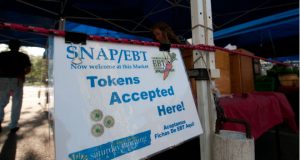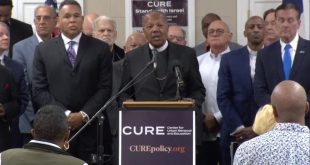 Robert Rector, a Heritage Foundation domestic policy expert, debunked the myth that welfare reform caused extreme poverty.
Robert Rector, a Heritage Foundation domestic policy expert, debunked the myth that welfare reform caused extreme poverty.
In a recently published article on the Daily Signal, he and Heritage policy analyst Rachel Sheffield wrote about what the government left out of its report on poverty.
The U.S. Census found that 43.1 million Americans lived in what the government defines as poverty last year. But this figure is misleading. Rector and Sheffield said that the Census doesn’t count all welfare benefits as income. An excerpt:
Why does the Census identify so many individuals as “poor” who do not appear to be poor in any normal sense of the term? The answer lies in the misleading way the Census measures “poverty.”
…
In 2014, government spent over $1 trillion on means-tested welfare for poor and low income people. (This figure does not include Social Security or Medicare.) Welfare spending on cash, food, and housing was $342 billion.The cash, food, and housing spending alone was 150 percent of the amount needed to eliminate all poverty in the U.S. But the Census ignored more than four-fifths of these benefits for purposes of measuring poverty. Effectively, the Census counts poverty in the U.S. by ignoring almost the entire welfare state.
The goal of welfare, the authors said, is to move people toward self-sufficiency.
“Despite having spent over $25 trillion on means-tested welfare since the beginning of the War on Poverty under President Lyndon Johnson, many Americans are less capable of self-sufficiency today than when the War on Poverty began.”
The formula for avoiding poverty include work and marriage. The authors believe that as part of new welfare reform, the government should require recipients to work or train for work to receive benefits, and it should remove marriage penalties.
 CURE News and Clergy Blog News and Commentary for Christians
CURE News and Clergy Blog News and Commentary for Christians



